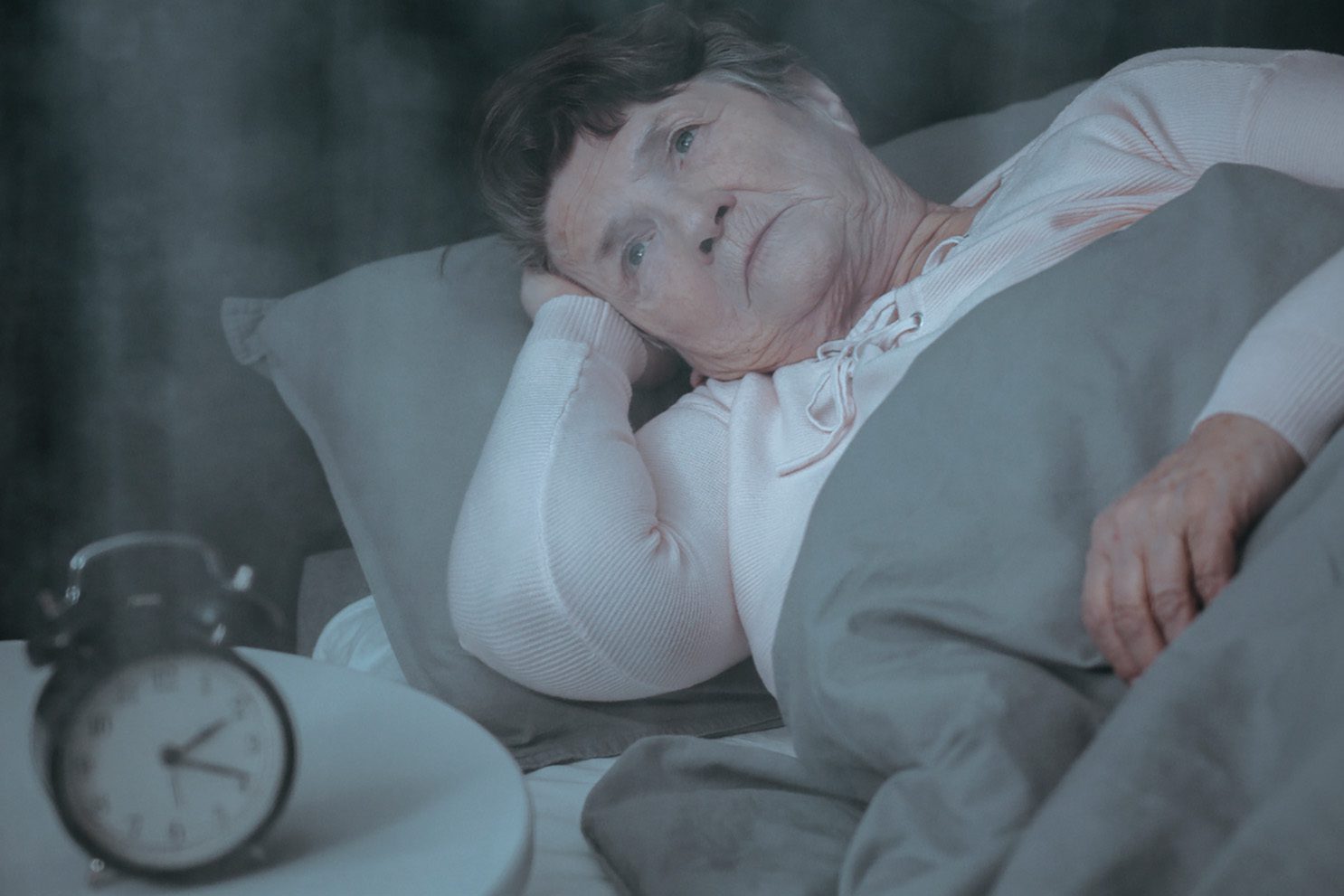There are many challenges for families and individuals who are living with Alzheimer’s disease but one area that is often greatly impacted is sleep.
Vitally important to both physical and mental health, quality sleep supports your brain function and can also affect your quality of life.
If you’re sleep deficient, your risk for certain chronic conditions increases. It also can greatly influence how well you think, react, learn, make decisions, solve problems, cope with change and handle your emotions.
The impact of Alzheimer’s disease and sleep
It is still not completely understood why those living with Alzheimer’s disease experience changes in their sleep. Although older adults may also notice changes in their sleep patterns, they seem to occur more frequently and severely if the person has Alzheimer’s.
The following are two of the more common changes to sleep patterns for those living with Alzheimer’s disease, according to the Alzheimer’s Association:
- Difficulty sleeping
Those living with Alzheimer’s may wake up more often and stay awake longer during the nights. There appears to be a decrease in dreaming and non-dreaming stages of sleep. Wandering may occur or the person might be unable to lie still or may call out often.
- Daytime napping
Individuals may feel sleepy during the day but then be unable to sleep at night. They may experience sundowning, which occurs when the person feels restless or agitated in the late afternoon or early evening. It’s been estimated that in the later stages of the disease, individuals may spend about 40% of their time in bed at night awake and a significant part of the daytime sleeping.
Alzheimer’s disease and sleep: suggestions to help your loved one
Both the individuals and their caregivers need a good night’s sleep. Consider the following recommendations if your family member is facing difficulties. If the problem persists or worsens, talk to the doctor or medical team to rule out any other causes and ask for any suggestions.
The following may help you to help your loved one get a better night’s sleep:
- Maintain a regular schedule for meals, going to bed and waking up
- Make sure your loved one is exposed to morning sunlight
- Encourage regular daily exercise but not within four hours of bedtime
- Ensure there is no pain or condition not being addressed and treated
- Encourage the individual to avoid alcohol, caffeine and nicotine
- Talk to the doctor about any medicines that should not be given before bedtime
- Make sure the bedroom is conducive to sleep, including a comfortable temperature
- When individuals are unable to sleep, encourage them to get out of bed. Use the bed only for sleep
- Discourage your loved one from watching television during periods when they cannot sleep
Source: Alzheimer’s Association
Alzheimer’s disease and sleep: suggestions to help yourself get a better night’s rest
You need sleep. And as a caregiver, it’s essential that you be alert and attentive, which is hard to accomplish if you aren’t getting rest. However, if your loved one doesn’t sleep well, you probably don’t either.
Talk to the medical team early on about any sleep disturbances. They may be able to help you resolve some issues, including if medication might be contributing to the cause or have tips that can help your family member sleep better – which means you will as well.
If your loved one continues to be unable to sleep during the night, you may need to ask for help. Could another family member or friend fill in for a few nights a week? Knowing that your loved one is being watched and well-cared for may help you relax and get a good night’s sleep.
Ignoring the problem rarely works. Your own health will begin to decline without proper rest. You may even handle the times your loved one wakes you up easier if you know that every second or third night you’ll be able to sleep uninterrupted.
You might also check into hiring a home health professional for the night time hours. Again, even if not every night, knowing that you will be able to get some rest while your loved one is safe and attended to can make a big difference.
We often neglect the importance of sleep and the impact it can have on our physical and mental health. But instead of trying to fit it in, we need to prioritize and do what we can to make it happen. Which in the end will also make you a better caregiver.
Life at Tapestry Memory Care communities
We understand the sleep challenges that can occur for those who are living with Alzheimer’s disease. We also know the exhaustion and strain that these difficulties can cause for their caregivers. We hope the above tips are helpful and can assist you and your family member to get some rest.
If you’re caring for a loved one living with a cognitive disease and finding it more difficult to meet the increasing needs, we invite you to consider memory care at one of our communities. We know this isn’t always an easy decision to make and we are here to answer any questions that you may have.
Our staff is specially trained in the best practices to connect with our residents. Our person-centered approach, services, amenities and activities all play an important role in helping both your loved one and your family live a meaningful and connected life.
We understand that choosing the right community is an important decision. We invite you to download our complimentary guide – Family Decision Toolkit: How to choose the right senior living community.
If you have any questions or would like to schedule a personal tour, please contact one of our advisors at a community near you.






